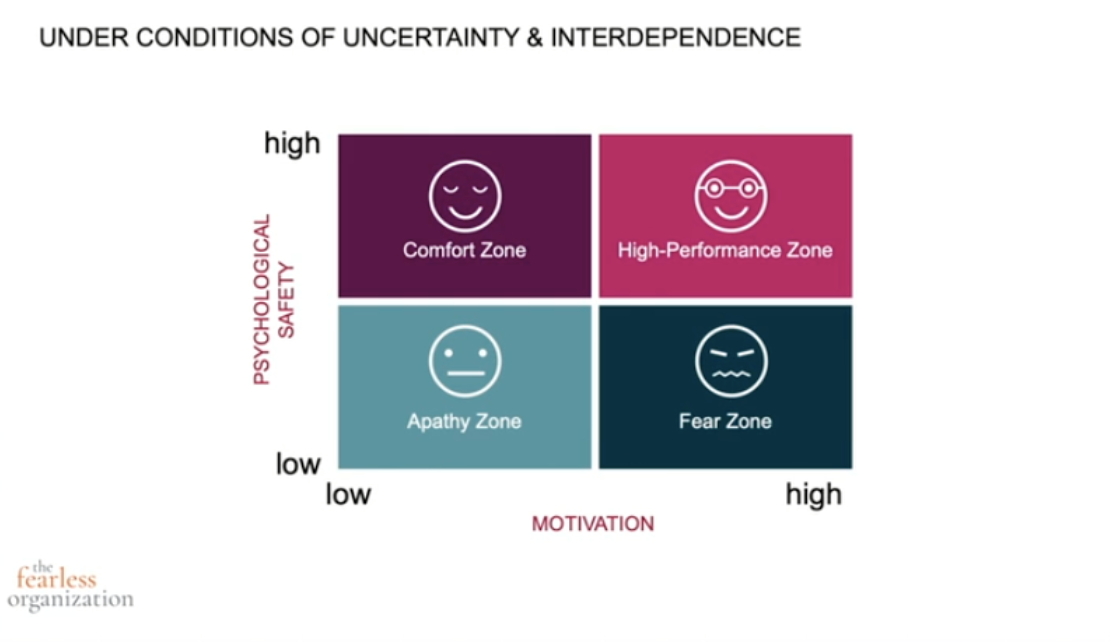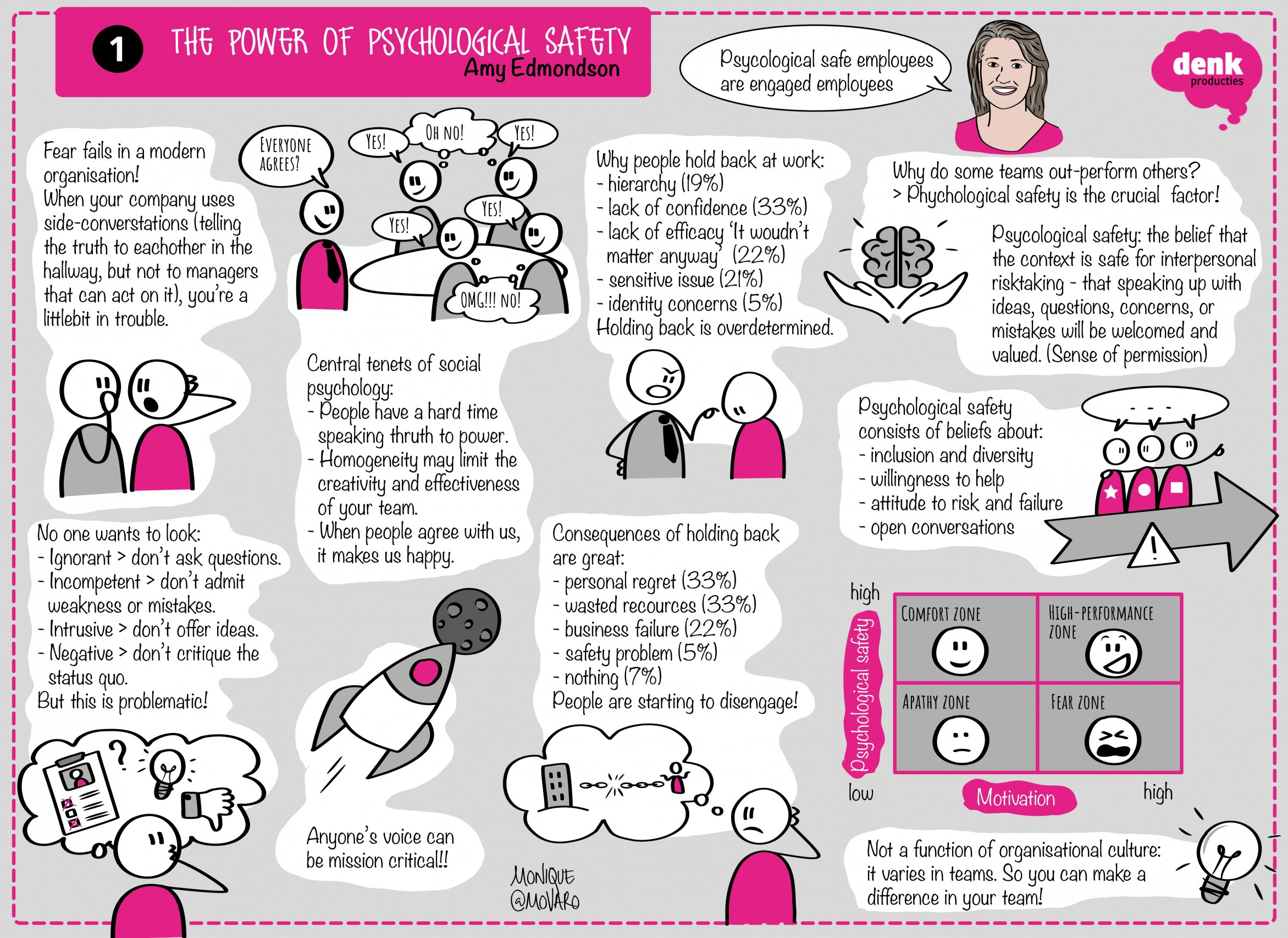Amy Edmondson: 2 must listen podcasts!
Wil je een stoomcursus in het werk van Amy Edmondson en haar werk over Psychologische Veiligheid? Doe dan nu je koptelefoon op en luister deze 2 podcasts.Verder lezen

On 1st June 2021, we organized a digital masterclass with Harvard professor Amy Edmondson. The half-day course focused on the power and importance of psychological safety in organizations.
Amy divided her presentation into three different parts. This blog is about the first part. It focusses on the basics: what is psychological safety and why does it matter in modern organizations.
Amy began by explaining that fear might have worked as a motivator in the past. To demonstrate that she gave an example of the classic automobile company Ford. Back in its early days, fear was a leadership tool as the work was standardized, individual, and objective; it was easy to spot if someone didn’t do his or her part.
“Today, we are far more likely to have work that requires judgment, collaboration, and coordination. The quality of that work is at least partly subjective and may take some time.” This type of work is far harder to lead and motivate through fear. “I suggest that fear fails for most of us in the work we do in a modern organization”.
The world we live in today is volatile, uncertain, complex, and ambiguous. Amy refers to this as the VUCA world. She recommends that we start taking this seriously. By acknowledging the fact that the environment in which we operate can be described with these 4 words, we internalize the idea that “anyone’s voice can be mission critical”.
Fear often stops people from voicing their ideas and opinions. No one wants to look ignorant, incompetent, intrusive, or negative. The way we avoid looking that way is by not asking questions, by not admitting our weaknesses or mistakes, and by not offering our ideas. That’s when the company’s learning, innovation, and progress are at risk.
The consequences of people not voicing their thoughts not only hold the company back from innovation and progress. It can also, in some cases, be disastrous for the organization. But naturally, it’s not always that something critical happens if people don’t speak up. However, what Amy highlighted is that even those times when nothing happens, the person who withholds his or her opinions and ideas, starts to disengage. So, in the long run, that becomes a problem too.
“Psychological safety is not a function of organizational culture.” Why? Amy stated that studies have shown that psychological safety varies between teams in the same organization. So, the bad news about this fact is that it is very hard for any company to simply decide to have psychological safety in their entire organization. “But the good news is that wherever you work, you have the opportunity to create psychological safety in your team.”
But to take a step back, Amy still wanted to define what psychological safety actually means as sometimes people understand it the wrong way. According to Amy, psychological safety is “a belief that the context is safe for interpersonal risk-taking - that speaking up with ideas, questions, concerns, or mistakes will be welcomed and valued”.
Psychological safety is not about being nice, a guarantee that all your ideas will be applauded, freedom from conflict, permission to slack off, or the goal. Amy underlined that indeed the goal can be anything from innovation to high performance, and psychological safety is a necessary means to reach that goal.
Next, to dive a little deeper, Amy listed 4 dimensions of psychological safety. Psychological safety consists of beliefs about:
What Amy finally underlined in this first part of the masterclass, was that through psychological safety organizations can reach high performance. “But it’s not enough. Psychological safety needs to coexist with motivational drivers.” In order to reach high performance, employees need to find passion, purpose, get feedback, etc. She demonstrated this through the table below.

“In the VUCA world, without both motivation and psychological safety it’s pretty hard to achieve high performance. You need both.”
Check this summary by Monique van Rooyen about The power of Psychological Safety.
